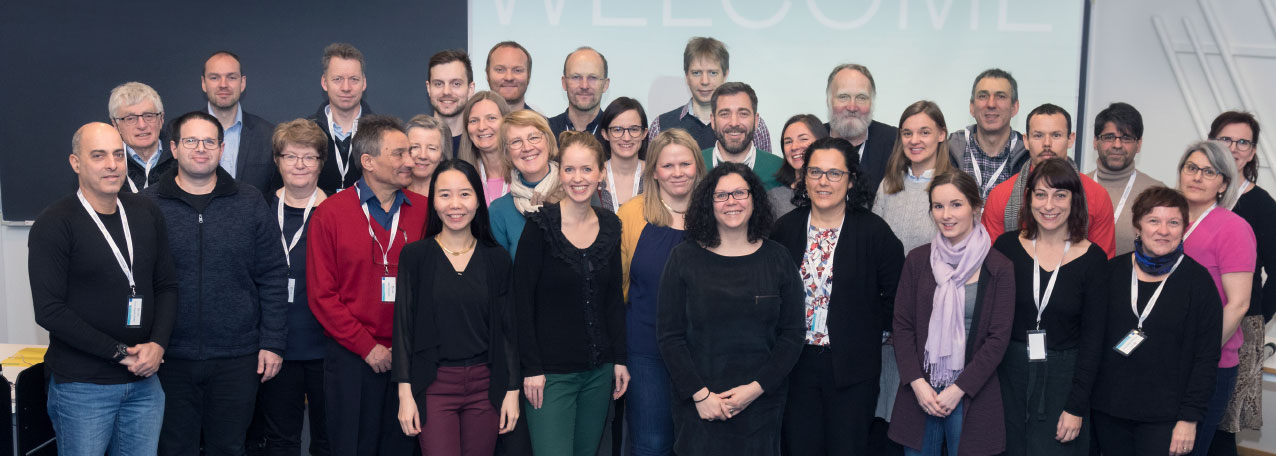
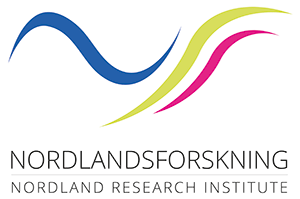
Project Coordinator
Nordland Research Institute (Nordlandsforskning, NRI) is a research institute headquartered in Bodø, Norway. The institute, which was founded in 1979, is majority-owned by Nord University. NRI conducts research on topics related to business and industry, social science, and the environment. NRI’s thematic scope is extensive and cross-sectional, and the institute also participates in collaborative research and development projects together with public and private clients.
The Business and Entrepreneurship research group at NRI has long and wide-ranging experience in research related to business and industry. The expertise of the group covers the spectrum from the company level to the industry and regional levels, and the group cooperates actively with institutions from both the private and the public sector in searching for timely solutions to real-world problems faced by policymakers and industry actors. International cooperation is a priority of the group, and the European Union is an increasingly important source of funding for the group’s project portfolio through the Horizon 2020 program and the European Regional Development Fund.
Nhien Nguyen [Senior Researcher]
Nhien Nguyen is a senior researcher at Nordland Research Institute (NRI), an Associate Professor at the Norwegian University of Science and Technology (NTNU), and an Associate Editor of The Learning Organization journal (Emerald). She holds a PhD in Industrial Economics and Technology Management from NTNU, funded by the Norwegian Research School in Innovation’s Program of Innovation Management and Strategy (NORSI-PIMS). She was a visiting fellow at Stanford University in her PhD program (SCANCOR), a visiting fellow at MIT Sloan School of Management in her MBA program in which she also cross-registered at Harvard Business School. Her research interests include innovation management, innovation system and policy, responsible research and innovation (RRI), smart specialisation strategy, organizational learning and the learning organization. Nhien Nguyen has been guest edited several special issues on topic related to innovation and learning.
Nhien Nguyen has been leading and coordinating several research projects focusing on innovation strategies, both at the organizational level and the national/regional policy level. She is the scientific leader of the SeeRRI project, WP leader of the IAMRRI project (H2020-SWAFS12-2017 for developing the model of innovation value chains in Additive Manufacturing under RRI), WP leader of the DigiTeRRI project (H2020 –SWAFS14- 2019 for building self-sustaining R&I ecosystems in Europe through RRI), and team member of the evaluation work package for the CityLoops project (H2020-SC5-2018, Closing the loop for urban material flows)
 Nordlandsforskning, Universitetsalleen 11 Postboks 1490 N-8049 Bodø Norge
Nordlandsforskning, Universitetsalleen 11 Postboks 1490 N-8049 Bodø Norge Åge Mariussen [Senior Researcher]
Åge Olav Mariussen is a senior researcher at NRI and an institute leader at the University of Vaasa, Finland. He has covered regional development, restructuring, transnational learning and innovation at several universities in Norway, Sweden and Finland, including the University of Tromsø, NIFU and the University of Vaasa. He is an expert in Smart Specialization Strategy (S3) and participates on the EC’s S3 Platform, which provides information, expertise, and advice to national and regional policymakers, promoting mutual learning, transnational co-operation and academic debate. He has organized several seminars in his field of expertise and presented his work at numerous international conferences.
 Nordlandsforskning, Universitetsalleen 11 Postboks 1490 N-8049 Bodø Norge
Nordlandsforskning, Universitetsalleen 11 Postboks 1490 N-8049 Bodø Norge Jens Ørding Hansen [Research Director]
Jens Ørding Hansen is a senior researcher at Nordland Research Institute, Norway. He holds a doctoral degree in International Management from University of Agder, Norway, and a master’s degree in Applied Economics and Finance from Copenhagen Business School, Denmark. His research interests include corporate governance, corporate finance, regional development, responsible research and innovation (RRI), and organization studies. He has taught finance, economics, and accounting at colleges and universities in Denmark, China, and Vietnam. At Nordland Research Institute he works on several Horizon 2020-funded projects focusing on RRI and regional development.
 Nordlandsforskning, Universitetsalleen 11 Postboks 1490 N-8049 Bodø Norge
Nordlandsforskning, Universitetsalleen 11 Postboks 1490 N-8049 Bodø Norge Are Jensen [Senior Researcher]
Are Jensen, PhD, is a senior researcher at Nordland Research Institute, Bodø Norway, where he works as an analyst and researcher. He holds a PhD in Management from Nord University, Norway. His research interests include organization studies, innovation management, public policy, and agent-based modelling. He has taught methodology and entrepreneurship at Nord University, Norway. At Nordland Research Institute he works on several Horizon 2020-funded projects focusing on Responsible Research and Innovation (RRI), the Additive Manufacturing (AM) industry, and public policy.
 Nordlandsforskning, Universitetsalleen 11 Postboks 1490 N-8049 Bodø Norge
Nordlandsforskning, Universitetsalleen 11 Postboks 1490 N-8049 Bodø Norge Thoralf Fargetun [Senior Communication Advisor]
Thoralf Fagertun is a senior communication advisor at Nordland Research Institute, Norway. He holds a master’s degree in comparative literature from the University of Tromsø and has worked as a journalist for several years. After moving into the field of communication, he has worked for The University of Tromsø, The Church of Norway and now Nordland Research Institute.
 Nordlandsforskning, Universitetsalleen 11 Postboks 1490 N-8049 Bodø Norge
Nordlandsforskning, Universitetsalleen 11 Postboks 1490 N-8049 Bodø Norge 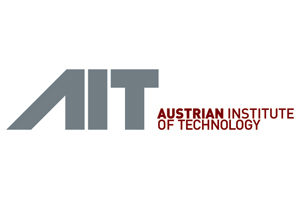
AIT conducts the quantitative R&I ecosystem mapping (Task lead WP2) and the workshops with external stakeholders (WP3 lead)
The AIT Austrian Institute of Technology is the largest non-university research institute in Austria. With its eight Centers, AIT regards itself as a highly specialised research and development partner for industry. Its researchers focus on the key infrastructure issues of the future: Energy, Health & Bioresources, Digital Safety & Security, Vision, Automation & Control, Mobility Systems, Low-Emission Transport, Technology Experience and Innovation Systems & Policy. In Austria, AIT has over 1.300 employees – mainly based at the main facilities in Vienna Giefinggasse, in Seibersdorf, in Wr. Neustadt, and in Ranshofen. The Center for Innovation Systems & Policy is a central node in national and international research and innovation networks. It is partner for public administration, companies, universities and research institutes as well as think tank and advisor for the Austrian and European policy. The Center for Innovation Systems & Policy deals with innovation management, technology management, innovation systems, complex systems and the theoretical framework of these. Various analytical approaches support the analysing and the mapping of the research and innovation systems for identifying emerging technologies and the network of agents behind. More specifically network analytics approaches, such as Social Network Analysis and advanced econometric techniques, from spatial econometrics and spatial interaction modelling helps to better understand on determinants and drivers of innovation dynamics. Research, technology development and innovation are of crucial importance for securing our economic well-being and for coping with major societal challenges. Therefore, the Center for Innovation Systems & Policy deals with current and future requirements for research and innovation systems. Forward-looking approaches by applying adequate methodologies help formulate RTI policy strategies for public authorities and firms.
Marianne Hörlesberger [Scientist]
Marianne Hörlesberger (female) has worked for AIT Austrian Institute of Technology GmbH since 2001. Currently she works mainly for projects with stakeholder engagement such as foresight and road mapping. She started in AIT with analysing data and methodologies such as informetrics, scientometrics, and bibliometrics for identification of emerging technologies and the network of agents behind those topics. In some projects, she combines both the analytical methodologies and the qualitative approach. She is currently responsible for stakeholder involvement and stakeholder workshops for in the EU projects IAMRRI (SwafS-2016-17, GA 78836S) and SeeRRI (SwafS-2018-2020, GA 824588). She has managed and coordinated international and national projects (one was 3D-LightTrans, 7.8 Mio EURO, 18 partners, and an innovation award). She has also organised several conferences, where she was responsible for the scientific programme. She graduated from the University Vienna and has a PhD in mathematics.
Martina Neuländtner [Junior Scientist]
Martina Neuländtner (female) is a Junior Scientist in the Center for Innovation & Policy at the AIT Austrian Institute of Technology GmbH, where she is currently working on modelling knowledge creation in regional innovation systems. She holds a Master’s degree in economics from the Vienna University of Business and Economics (WU) and a Bachelor’s degree in statistics from the University of Vienna. Since 2016, she attends the doctoral programme in social and economic sciences at the WU, with a focus on economic geography and economics of innovation. Martina Dünser has comprehensive methodological skills covering various fields of quantitative data analysis, such as (spatial) econometrics, social network analysis and general statistics. Moreover, her special interests lie in the visualization of spatial and network data.

Andrea Kasztler [Scientist]
Andrea Kasztler (female) is working as scientist at the Center for Innovation Systems and Policy of the Austrian Institute of Technology (AIT) since 2001. She studied Technical Physics at the University of Technology Vienna where she worked as a University Assistant for several years in the field of superconductivity and where she received a PhD. During the last years, her main research topics were RTI strategies of organizations, innovation models, and the analysis of collaboration structures with means of Social Network Analysis. Andrea Kasztler co-worked within or led several national or international research projects. The contents were studies, evaluations, or process guidance for various customers, such as e.g. Austrian Ministries, educational institutions, research organizations, companies, and for the European Commission. Among other literature, she published in the Journal of Intellectual Capital, in Science and Public Policy, and in Physica C.
Beatrix Wepner [Scientist]
Beatrix Wepner (female) has joined the AIT in 2010 as scientist and technology manager at the Center for Innovation Systems and Policy and has been involved in or coordinated a number of national and European studies about value chain analysis, manufacturing technologies, energy and resource efficiency strategies (bio-economy). Currently she is involved in a study analysing value chains in sectors adopting additive manufacturing technologies. She regularly applies quantitative and qualitative methods and experienced in conducting interviews and case studies and moderating workshops in a highly interactive setting as well as monitoring and detecting emerging technologies and trends. She is responsible for quality management at the department, linking her education in life sciences and her experience from the previous placements.
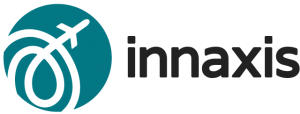
Leader of Workpackage 4. Integrated Conceptual Framework
The Innaxis Foundation & Research Institute is an interdisciplinary non-profit organization founded in 2006 and based in Madrid and Brussels. Its aim is to build up relevant research and transformative innovations in the domain of large-scale socio-technical systems based on networks. It aims to achieve this by using the perspective and techniques of complex systems science, such as complex networks theory, systems dynamics, systems thinking, agent-based modeling and simulation.
Innaxis is proficient in the promotion, conception, partnership, funding and management of R&D collaborative projects, mainly supported by the European Framework Programs, including the ongoing Horizon 2020. It is also involved in the creation of spin-offs to exploit the research outcomes, such as the companies Skybus, for sustainable urban mobility platforms and Tadorea for advanced decision-making tools in air transport and air traffic management.
This core of knowledge enables Innaxis to rigorously investigate the properties of complex systems, such as resilience and emergent phenomena. One long-term purpose of the Foundation is to leverage complex perspectives and to enable the conception of the holistic paradigms needed to address the grand challenges of 21st century. Innaxis achieves this by working with other organizations active in social sciences, policy assessment and participatory activism. In this context, Innaxis is, in particular, interested in integrating processes of societal challenges in Science and Innovation by involving all stakeholders in the elaboration of new methods for effective institutional change.
Carlos Alvarez Pereira [President]
Founder of the Innaxis Research Institute and head of consulting businesses in Spain, Switzerland and France. He holds a MSc in Aerospace Engineering from the Polytechnic University of Madrid (UPM) and is personally involved in research on the paradigm shift towards holistic sustainability and the use of tech for humanity. His entrepreneurial experience spans 25 years in research and IT, starting as a lecturer in Applied Mathematics at UPM, and later creating and managing several consulting companies in different european countries. He is member of the Executive Committee of the Club of Rome and has served as Vice-President of the Spanish Fulbright Alumni Association.
 Fundacion INNAXIS Génova 11 - 28004 Madrid - ESPAÑA - Tel +34 902 955 527
Fundacion INNAXIS Génova 11 - 28004 Madrid - ESPAÑA - Tel +34 902 955 527 Joséphine von Mitschke-Collande [Programme Manager]
Joséphine von Mitschke-Collande is Programme Manager at INNAXIS Foundation and Research Institute. INNAXIS is a non-profit organization promoting interdisciplinary research based on the concepts of complex systems and networks. Joséphine manages the research agenda INNAXIS for Paradigm Shift (INX4P) focusing on holistic changes for a socio-ecological transformation. Joséphine holds an MSc in International Relations from the University of Bristol and graduated in Political Science from Panthéon Sorbonne, University of Paris. Joséphine research covers sustainability issues from a holistic systemic perspective and engages in large scale societal transformation. Previously she has been working for the Club of Rome International Centre as a research analyst and project manager, and at several international organizations such as the European Commission, the UN and UNESCO.
 Fundacion INNAXIS Génova 11 - 28004 Madrid - ESPAÑA - Tel +34 902 955 527
Fundacion INNAXIS Génova 11 - 28004 Madrid - ESPAÑA - Tel +34 902 955 527 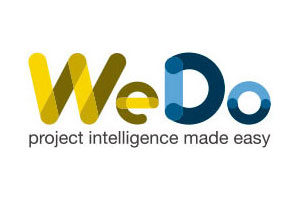
WeDo, as leader of WP7 (Dissemination, Outreach, and Sustainable Exploitation), guides the design and implementation of dissemination plans and communication strategy, including stakeholder engagement (in close collaboration with WP3), as well as supports the devise of the sustainability roadmap of the project outcomes. Additionally, WeDo supports the coordinator (NRI) in project management tasks in the framework of WP1 (Project Coordination and Management), following-up activities and monitoring compliance with the work plan, planned resources and time schedule. WeDo ensures the timely delivery of the deliverables and tracking milestone achievements, and supports the coordinator on quality control, risk management (identification, assessment of threats and opportunities, mitigation and contingency plans), and overall financial management (budget and costs/payments control) and administration.
WeDo is a company specialized in the management of international, complex, and distributed research and innovation projects based in Barcelona. WeDo works with a miscellany of stakeholders from both public and private sectors, applying a strategic, holistic, and lean project management approach to create an effective collaborative framework for results-driven decision-making and performance.WeDo leverages on the expertise of a multi-disciplinary team of highly skilled and experienced professionals, with complementary backgrounds and a track record of 14 years in international collaborative projects, with special attention to EC-funded projects since FP6 (including ICT, HEALTH, ENVIRONMENT, NMP, IMI-JU, SSH, SWAFS), among other programmes and funding schemes. WeDo professionals are an asset for the strategic planning, the project management, the financial and legal assessment, the exploitation and IPR management, the knowledge management, the business and sustainability planning, and the design and implementation of dissemination and communication strategies of projects. As a result of working over many years with companies, research centres and universities in the Health sector, this team has a track record in the valorisation of research results and innovation processes arising from patient data-related projects.
Angel Honrado [CEO and Project Manager]
Ángel Honrado (male). Co-founder and CEO. BSc Tourism Planning, MSc in Local Development and Territorial Innovation, and Postgraduate in Fundraising. Since 2004 he has been working as Project Manager with consultancies, research centres, universities, and biotech companies in planning, managing, and driving 15 collaborative and multidisciplinary research projects (including 3 FP6, 5 FP7, 2 H2020, 2 IMI-JU, 1 URBACT, and 2 Gates Foundation’s) in direct support of the scientific coordinators with ~85M€ funding. He has acted as evaluator for the European Commission in the framework of two SME-focused calls for proposals. He has been directly involved in the preparation and management of more than 65 research and innovation proposals submitted to the European Commission, supporting different organisations and stakeholders across Europe. As part of his roles, he has worked also in the development and implementation of communication and outreach plans (including the organisation of focus groups, workshops, and international conferences), as well as in the development, as Exploitation Manager (or member of exploitation committees), of business modelling, exploitation, and sustainability strategies for the results generated in EU-funded projects, such as ERC-PoC-SERE; FP7-SEMCARE, IMI-EMIF, and H2020-MedBioInformatics. He has wide experience on teaching courses on proposal preparation, complex distributed project management, and communication of research project results. He is also one of the authors of the Guide for managing Horizon 2020 projects, published in December 2014 by the Catalan Innovation Agency. Since 2016 he is also co-founder and Public Funding Manager of FreeOx Biotech S.L., a start-up company developing a neuro protective treatment preventing the damage caused by reperfusion after stroke, based on the results of clinical research.
Mireia Manent Blanch [CEO and Project Manager]
Mireia Manent (female). Co-founder and CEO. Psychologist and MBA graduate by University Pompeu Fabra. Since 2008 she has been working as Project Manager with consultancies, research centres, universities, and biotech companies for the submission of proposals (20+) to a variety of public and private funding agencies across Europe and has contributed to the management of projects funded with ~50M€ (5 FP7, 1 IMI-JU, 1 NIH P01). She has worked also in the provision of coaching and revision of research proposals for the FP7, H2020, ERC, and MSCA calls. Her duties in the research project management front include the participation in the governance boards of the projects; the management of a portfolio of projects for the development of both therapeutic and preventative HIV vaccine strategies; the financial management and auditing of the projects; the strategic surveillance of progress with the project coordinator and/or managing boards; and the communication and outreach of the projects and their results (including the production of communication materials and the organization of meetings and conferences). Within this final outreach activities, she also contributed to the organization of a +1500-people conference, as main contact person for the conference secretariat on behalf of the organizers for all related matters. She is also experienced with the submission and management of Spanish national grants (ISCIII, MINECO, AGAUR) and has also contributed to the management of collaborative MINECO grants. In her latest responsibilities, there is also the management of a patent portfolio, including the revision and update of the portfolio, and the liaison with researchers, patent agents and general management. Finally, she has wide experience in the design, generation of content materials, implementation and evaluation of adapted teaching courses.
Mario Magaña [Project communication and engagement and Project Manager]
Mario Magaña (male). More than 15 years’ experience in visual communication and design project management for EU-funded projects, including brand and communication tool development, social media management, and outreach-supporting material elaboration. He can also contribute to all the project, portfolio and/or project management office communication aspects (internal and external, as well as for the project outreach), assisting in the development and implementation of all tools, templates, procedures and best practices. He also capitalizes on his project assistant background to aid in all the back-office duties (from meeting organization to budget control, knowledge management and archiving, team coordination and team building activities, to reporting).
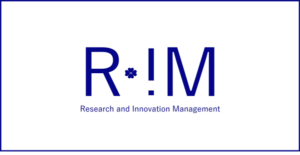
Task leader in WP 5 and 6
Research and Innovation Management GmbH (RIM) is a small and medium sized company (SME) that supports in planning and developing pioneering projects. RIM addresses the future-oriented structuring of research and innovation in order to assist in overcoming new challenges. Sustainable resource management is one central core competence of RIM. RIM provides practitioners with proven and ground-breaking knowledge to explore and exploit entrepreneurial opportunities. RIM manages innovative processes with a unique set of services in order to deploy the creative capabilities of all involved resources. RIM also conducts interdisciplinary research covering a diverse set of different themes. The portfolio draws on a variety of academic disciplines across the fields of management, education, business, economics, financing and evidence-based policy advice. The practical implications for management and business practitioners as well as policy-makers are fundamental to the research. RIM’s portfolio on ICT initiatives are cross-, multi-, inter- and transdisciplinary.
Katharina Fellnhofer [CEO]
As company director, Katharina Fellnhofer leads this management consulting firm. She started her business in 2010 and has to date developed and managed several ICT projects while lecturing or active at several universities across Europe. New Design University, Danube University Krems, St. Pölten School of Applied Sciences, University of Applied Sciences Salzburg, University of Liechtenstein, and the University of Bayreuth. As a member of several committees, Katharina is an advisor to policy-makers and the business community—for instance, she was a member of the Horizon 2020 Expert Group on assessing the investment potential of SMEs emerging from the SME Instrument. Katharina has been an Erwin-Schrödinger-Fellow from 2015 to 2017 with her habilitation project entitled “E-Ship-Stories Initiative for Entrepreneurship Education“. Since July 2017 she is a Docent at Lappeenranta University of Technology in Finland. In 2018 she was a Visiting Scholar at the Weatherhead Center of International Affairs at the Harvard University and ETH Zürich.
 Marktplatz 7a, 3371 Neumarkt an der Ybbs
Marktplatz 7a, 3371 Neumarkt an der Ybbs 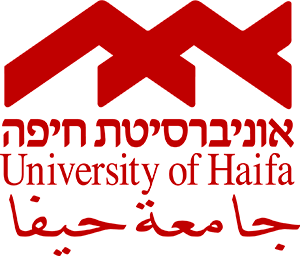
The University of Haifa is involved in all work packages and leads the evaluation work package whose objectives are:
-To design methods for evaluating the project activities and the framework for self-sustaining RRI ecosystems
-To evaluate the outcomes of the activities initiated in the three territories
-To determine societal, democratic, environmental, economic and scientific impacts of activities in the territories
-To make recommendations on policy and governance structures to facilitate the creation and maintenance of self-sustaining RRI ecosystems
The University of Haifa, established in 1972, is an academic institution whose central function is to carry out excellent academic teaching and research. The University has a multicultural environment comprising Jewish, Haredi and secular students, new immigrants, Arabs and Druze. The University of Haifa is the most pluralistic institution of higher learning in Israel and is an exemplar of excellent research and teaching in an atmosphere of mutual respect and inclusion.
Two research units from the University of Haifa participate in the consortium:
The Center for Public Management and Policy – established in 2004 studies questions related to the management of public agencies, governmental ministries and public organizations as well as quasi-governmental organizations. Its goal is to improve the understanding of mechanisms and processes related to the performance of the Israeli public sector and public sectors around the globe. It contributes to the development of new managerial tools, innovative ideas on policy determination, policy making procedures, and administrative solutions to public concerns.
The Information Systems Department – established in 2002, is interdisciplinary and practical in nature. Emphasis is placed on industry relations, applied research, and collaborative research with other departments in the faculty of social sciences and with industry. The department engages in research related to the design, implementation and management of information systems with an emphasis on multi-stakeholder involvement in all aspects of the systems.
Dr. Alan Hartman [Senior Lecturer, Department of Information Systems]
Dr. Hartman’s recent appointment at the University as an industry expert follows his thirty-year career at the IBM Research Division in Haifa and Bangalore. He received his Ph. D. in mathematics in 1980 from the University of Newcastle, Australia. He has participated in and coordinated a number of European projects including AGEDIS, MODELWARE, MODELPLEX, COCKPIT and others. He has published widely in software engineering, mathematics, and more recently in service engineering. He holds 17 patents. His current research focuses on participatory design for e-government and mobile applications for development, while maintaining his research activity in software engineering. He is a member of the editorial board of the journals Software and System Modelling and Software Testing Verification and Reliability.
 Abba Khoushy Ave 199, Haifa, 3498838, ISRAEL
Abba Khoushy Ave 199, Haifa, 3498838, ISRAEL Dr. Itai Beeri [Senior lecturer and the Head of the MPA program 'Local Government Administration and Policy' at the School of Political Science]
Dr. Beeri received his Ph.D. from the National University of Ireland-Cork, Faculty of Commerce (2009). With major expertise in public administration, public management, and local government, Beeri is the author and co-author of more than 20 articles and book chapters, as well as many other scholarly presentations, working papers, and ad-hoc reviews. He has recently participated in and coordinated on behalf of the Israeli team the European project COST Action IS1207, and lead a team of researchers that explored ‘The Carmel Biosphere Reserve and The Druze Community: Environmental Education for Establishing Green Small and Medium Businesses’. He holds several public consultant positions in conjunction with The Ministry of Interior and The Ministry of Finance, and he has supervised more than 20 post-grad research students.
 Abba Khoushy Ave 199, Haifa, 3498838, ISRAEL
Abba Khoushy Ave 199, Haifa, 3498838, ISRAEL Dr. Donatella Casale Mashiah [Postdoctoral Research Fellow, Center for Public Management and Policy, School of Political Sciences]
Dr. Casale Mashiah holds a Ph.D. in Business Economics and Management, with a specialization in Public Management and Policy. She has participated in international European research projects such as the European Cooperation in Science and Technology’s Action on Local Public Sector Reforms (COST IS1207 Loc-Ref) and is a member of the Observatory on Local Autonomy (OLA). She has been a research fellow at the Institute for Jewish Policy Research in London and visiting fellow at the Quality of Government Institute at the Department of Political Science at the University of Gothenburg and at the Department of Public and NonProfit Management of the University of Potsdam. She is the author, and coauthor, of research reports, articles and book chapters, and she has presented her research at international conferences, including those of the European Group for Public Administration and the European Institute for Advanced Studies in Management.
 Abba Khoushy Ave 199, Haifa, 3498838, ISRAEL
Abba Khoushy Ave 199, Haifa, 3498838, ISRAEL Professor Eran Vigoda Gadot [Professor of Public Administration and Management, Political Science and Governance]
With major expertise in Public Administration, Public Management, and Organizational Behavior Vigoda-Gadot is the author and coauthor of more than 170 articles and book chapters, 12 books and symposiums as well as many other scholarly presentations and working papers. He received his Ph.D. from the University of Haifa (1998) and spent time as a visiting professor in Britain (Chevening Scholarship), Ireland (National University-Cork – Department of Government), Canada (McGill University – Desautels Faculty of Management), the USA (University of Georgia- Department of Public Administration & Policy, Harvard Kennedy School – Ash Center for Democratic Governance & Innovation, University of Massachusetts, Boston – McCormack Center for Public Management), and Belgium (KU Leuven -Public Governance Institute). His current research interests include Organizational Behavior and Human Resource Management in Public Administration; Organizational Politics; Political Behavior and Citizens’ Role in Governance; Trust in Government; Public Sector Reforms and Performance; Organizational Citizenship Behavior (OCB); New Public Management (NPM); Democracy & Bureaucracy; Collaboration; Innovation in Public Administration; Statistics & Methodology in the Social Science.
 Abba Khoushy Ave 199, Haifa, 3498838, ISRAEL
Abba Khoushy Ave 199, Haifa, 3498838, ISRAEL 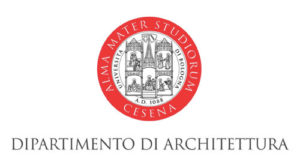
WP2 leader
Founded in 1088, the Alma Mater Studiorum – Università di Bologna (UNIBO) is known as the oldest University of the western world. Nowadays, UNIBO remains one of the most important institutions of higher education across Europe with 11 Schools, 33 Departments and more than 87.000 students; it is organized in a multi-campus structure with 5 operating sites (Bologna, Cesena, Forlì, Ravenna and Rimini), and, since 1998, also a permanent headquarters in Buenos Aires.
With regard to the international reputation, UNIBO has been awarded the use of the logo “HR Excellence in Research” and is among the top 5 Italian universities in the main International rankings, e.g., the only Italian University (182nd position) in the top 200 of the international QS – World University Rankings of the world best universities since 2010 and the only Italian which has appeared in the top 100 of the QS – World University Rankings by Subject in all the 5 macro-areas of knowledge (only 7 University in Europe and 37 in total).
The Department of Architecture has a comprehensive expertise in the building environment sector: building design, urban regeneration, restoration and preservation of buildings, building technology, construction management, building maintenance. Within the DA, the Planning and Regeneration research group has a well-known experience in the field of spatial planning and in integrating sustainability principles to planning tools.
Simona Tondelli [Associate professor in urban planning]
Environmental engineer and PhD in Building and Spatial Engineering, she is associate professor of Urban Planning. She has 20 years research experience in sustainable urban development. Besides being the scientific main contact person for UNIBO in SeeRRI project, she is currently project coordinator of one H2020 project on rural regeneration through heritage-led regeneration strategies (RURITAGE), coordinator of one Interreg Europe project (MATCH-UP), partner in one H2020 project (SHELTER) and in other projects funded under ERASMUS+ Programme, JPI Urban Europe Programme and Climate-KIC Programme. She is vice-director of the Emilia-Romagna section of the National Urban Planning Institute (INU). She is member of the scientific board of Architecture Doctorate of Bologna. She is author of over 100 publications.
 Department of Architecture Viale Risorgimento 2, 40136 Bologna
Department of Architecture Viale Risorgimento 2, 40136 Bologna Angela Santangelo [Research fellow]
Angela Santangelo, architectural engineer, she is research fellow at the Interdepartmental Centre for Applied Research – Buildings and Construction and PhD candidate in Architecture at the University of Bologna. Her research focuses on urban planning and particularly on energy efficiency and occupant behaviour in the public housing sector. From 2013 to 2015 she has been research fellow at the Interdepartmental Centre for Applied Research – Buildings and Construction, University of Bologna. Since 2014 she has been tutoring in urban planning techniques course at the university of Bologna. From September 2016 to January 2017 she has been visiting Ph.D. candidate at the Building Energy Research Center, Tsinghua University, Beijing. From September to October 2017 she has been Climate KIC Pioneers into Practice at the Environmental Center of the City of Helsinki. Since March 2018 she has been nominated MC Substitute of the EU COST Action European Energy Poverty.
 Department of Architecture Viale Risorgimento 2, 40136 Bologna
Department of Architecture Viale Risorgimento 2, 40136 Bologna Alice Panciroli [Research fellow]
Alice Panciroli, architectural engineer, graduated at the School of Architecture and Building Engineering at the University of Bologna in 2018. Her Master Thesis, with the title “Urban densification: building add-ons, infill, re-use and substitution. Two case studies in the City of Bologna.”, was a combined work between Sustainable Architecture and Urban Planning Techniques. She got a scholarship to carry out a 3-months pre-degree internship at an international architecture and landscape design studio in Barcelona in 2017. From February 2019 she is a research fellow at the Department of Architecture at the University of Bologna, her research focuses on RRI and cultural heritage.
 Department of Architecture Viale Risorgimento 2, 40136 Bologna
Department of Architecture Viale Risorgimento 2, 40136 Bologna 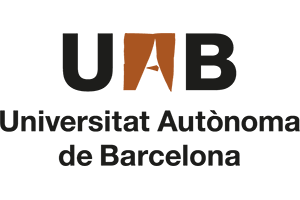
The role of the UAB team in the SeeRRI project is mostly focused on its expertise in training and assessing RRI. Consequently, UAB will collaborate in a) building a framework for institutional and territorial implementation of the RRI approach, b) developing a program of activities leading to this implementation and c) monitoring and evaluating activities
The Universitat Autònoma de Barcelona (UAB) was founded in 1968, with four principles of autonomy: freedom to select teaching staff, admission available to all students (but with a limited number), freedom to create its own study plans and freedom to administrate the University’s capital. It is therefore a young university, but in its short history it has moved forward at a rapid pace. The UAB is an institution that demonstrates its commitment to society by contributing in two main areas: knowledge and innovation. It is among the best education establishments in Spain in terms of the quality of teaching and research, and its aim to prepare professionals with the profiles needed by society. The University aim also to contribute to society through its scientific research. To achieve this objective, the school offer a wide range of courses, with 78 undergraduate courses, 88 doctoral programmes, 123 postgraduate programmes and 335 specialisation courses. The campus hosts a number of research centres and institutes, which together with the departments, make up the research consortium known as the UAB Sphere. The university is one of the few in Spain to have an infrastructure created entirely for university life, with all the different academic, research, cultural and social activities on the same central campus. Furthermore, the school is also very committed to projecting the university internationally, and we take part in a number of international programmes and student exchange programmes, especially with Europe, Latin America and Asia.
The Universitat Autònoma de Barcelona (UAB), is one of the major public universities of/in Spain. Currently, the university offers 88 bachelor’s degrees, covering a wide range of fields in humanities and arts, social sciences, health sciences, technology and physical sciences. Furthermore, the UAB offers more than 130 master’s degrees, as well as 8 Erasmus Mundus master’s degrees. More than 1,000 PhD dissertations have also been presented/defended within its many doctoral. The UAB has over 41,000 students, almost 4,600 researchers and teaching staff, and hosts more than 6,000 foreign students.
Since its foundation more than 50 years ago, the UAB has been recognized for its excellence in promoting quality in teaching and in attracting international talent. Its impact on research is noteworthy and has led to a progressive improvement in its position in the most prestigious international rankings. The UAB is recognized internationally for its quality and innovation in research. The UAB incorporates an association of different centers (considered the UAB Sphere) which constitute potent scientific and technological units, consisting of all departments, scientific and technological services, research centers, institutes and university hospitals. The UAB also promotes new business projects, focuses some activities on local socio-economic needs, and disseminates newly acquired knowledge. Thus, the UAB is an important center which plays a leading role in scientific research.
Xavier Ariño [Head of Strategic Projects at UAB]
PhD in Biology. More than 20 years post PhD experience as researcher and academic and research management in EC projects. He is assessor of EURAXESS, and the representative for the implementation of Charter & Code at the UAB. He is the responsible of P-SPHERE, a Marie S. Curie COFUND project coordinated by the UAB. Currently, he is leading several strategic initiatives at the UAB, as the RIS3 CAT, the Research Professional Development Program (including RRI training), and the Innovation Hub B30.
Begoña Miñarro [Strategic Project Manager]
PhD in food science and technology. 3 years post PhD experience as researcher and project manager in different international and national projects. She is currently trainer of RRI courses and coordinating and implementing the daily task of the strategic projects unit (P-Sphere, Research Professional Development Program, HEIRRI).
Núria Claver [European Projects Advisor]
Sociologist working as a research advisor at UAB to research groups working in the field of Social Sciences and Humanities. She is member of the UAB Open Access committee since its foundation in 2013. From January 2018 she is board member of the Catalan Association of Sociology. She has been trainer at RRI courses and she is involve in the implementation of an RRI strategy at the UAB’s Open Labs.
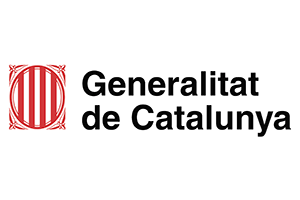
Generalitat de Catalunya is responsible of the task of transnational learning between territories. It collaborates with the UAB in the implementation of activities and workshops in the B30 territory and contributes, from its own experience, to the debate on how to include RRI in smart specialization strategies.
The Generalitat de Catalunya is the regional Govern of Catalonia. The participation in the Project is through the General Directorate for Economic Promotion, Competition and Regulation (GDEPCR). The GDEPCR is responsible for the execution of Catalonia’s ERDF Operational Program and also for the coordination of Catalonia’s RIS3 Strategy (RIS3CAT). Part of the objectives and tasks of this General Directorate are: Introducing open innovation into public policies, monitoring the smart specialisation process, promoting the entrepreneurial discovery process, and promoting the quadruple helix approach in the design and the implementation of social challenge oriented policies.
Tatiana Fernández Sirera [Head of Economic Promotion]
Tatiana Fernández is head of Economic Promotion at the Government of Catalonia’s Ministry of the Vice-presidency and of the Economy and Finance. She coordinates the Research and Innovation Strategy for the Smart Specialisation of Catalonia (RIS3CAT) and other strategic projects. Before that, she worked for many years as an economic analyst and adviser on EU economic issues. She holds a PhD in European Integration and International Relations from the Autonomous University of Barcelona, a Master of Economics – Europe from the University of Saarland and a Bachelor of Economics from the Autonomous University of Barcelona.
Montserrat Daban Marín [Head of International Affairs, Secretariat for Universities and Research, Government of Catalonia; Scientific and International Relations Director, Biocat, BioRegion of Catalonia.]
Montse Daban is Bachelor of Science Degree in Biology (University of Barcelona, 1987); PhD in Molecular Biology (Polytechnics University of Catalonia, 1991); Master of Science in Science Communication (Pompeu Fabra University, 1996); Executive Master’s Degree in Diplomacy and International Relations (Pompeu Fabra University, 2017). Her career has been devoted to knowledge and internationalization: academic research, science communication, research and innovation policy management and knowledge system internationalization.
From 1987 to 1999 she worked as a researcher on molecular biology in National and International (France and USA) research institutions. From 1999 to present she has occupied different positions as a communication, external affairs and international relations officer and policy adviser in public and private environments, remarkably in the last eight years for the Catalan Government and linked agencies. She’s fluent in English, French and Italian as foreign languages.
Ricard Benítez Hernández [Digital social innovation projects manager]
Ricard Benítez is Bachelor in Communication Sciencies and Management Computer Technician. He has worked many years as a journalist in the Government of Catalonia. Currently, he manages Digital Social Innovation projects in the Digital Inclusion and Training Department, in the Secretary of Telecommunications, Cibersecurity and Digital Society –Ministry of the Presidency of the Catalan Government. He has long experience and strong skills in communication, media management, digital literacy and coworking.
 Passeig de Gràcia 19. 08007 Barcelona. Spain
Passeig de Gràcia 19. 08007 Barcelona. Spain 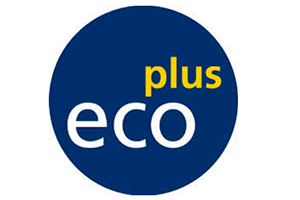
The ecoplus Mechatronics-Cluster team coordinates regional activities and initiates collaborative innovation projects – e.g. in the field of “Additive Manufacturing”, one of the region’s smart specialization domains. In this function, it interacts with companies and research entities in Lower Austria and neighbouring Austrian regions and fosters open innovation processes.
As an outcome of this stakeholder coordination process the region recently invested in a LMI (lab of manufacturing innovation) for Additive Manufacturing at the Technology and Research Centre in Wiener Neustadt. The goal is to provide regional companies, an economically viable infrastructure for the development, training and production of 3D printed metal parts.
With its long-term experience, ecoplus will contribute to the mapping of existing stakeholders and networks in the region, enable exchange of experience in regional workshops and provide feedback to the policy recommendations in close collaboration with the regional government department for economy.
The Lower Austrian Business Agency ecoplus is a non-profit organization, 100% owned by the Regional Government of Lower Austria. On behalf of the regional government, the ecoplus department Clusters is in charge of implementing the Lower Austrian Cluster Programme, which is an integral part of the region’s Smart Specialization Strategy. ecoplus currently manages 4 regional cluster initiatives (involving a total of 563 cluster members), including the Lower Austrian branch of the cross-regional initiatives Plastics-Cluster and the Mechatronics-Cluster awarded with the European Cluster Management Excellence Gold Label (please see: https://www.clustercollaboration.eu/cluster-organisations/ecoplus-business-agency-lower-austria-plastics-cluster, https://www.clustercollaboration.eu/cluster-organisations/ecoplus-business-agency-lower-austria-mechatronics-cluster) .
Organization:
The ecoplus Mechatronics-Cluster team coordinates regional activities and initiates collaborative innovation projects – e.g. in the field of “Additive Manufacturing”, one of the region’s smart specialization domains. In this function, it interacts with companies and research entities in Lower Austria and neighbouring Austrian regions and fosters open innovation processes.
As an outcome of this stakeholder coordination process the region recently invested in a LMI (lab of manufacturing innovation) for Additive Manufacturing at the Technology and Research Centre in Wiener Neustadt. The goal is to provide regional companies, an economically viable infrastructure for the development, training and production of 3D printed metal parts.
With its long-term experience, ecoplus will contribute to the mapping of existing stakeholders and networks in the region, enable exchange of experience in regional workshops and provide feedback to the policy recommendations in close collaboration with the regional government department for economy.
Harald Bleier [Cluster Manager (Plastics Cluster, Mechatronics Cluster)]
Harald Bleier manages the Mechatronics- and the Plastics-Cluster in Lower Austria. Both cluster initiatives are cross-regional, i.e. the cluster management teams in the Lower Austrian business agency ecoplus and the Upper Austrian business agency biz-up jointly facilitate the interaction of in total more than 700 cluster members. Harald Bleier has more than 20 years professional experience in the development of plastics injection moulding machines, last as head of the R&D department. He is mentioned as inventor in more than 50 national, European, USA and PCT patents. Since 2005, he is working for ecoplus and initiates together with his team cooperative projects between SMEs and research institutes to rise the innovation ratio of regional companies through national and international research projects. Both Mechatronics- and the Plastics-Cluster have been awarded with the European Cluster Management Excellence Gold Label.
 Ecoplus. The Business Agency of Lower Austria Mechatronics Cluster Niederösterreich- Ring 2, Haus A A-3100 Sankt Pölten
Ecoplus. The Business Agency of Lower Austria Mechatronics Cluster Niederösterreich- Ring 2, Haus A A-3100 Sankt Pölten Simone Hagenauer [Project Manager Clusters]
Simone Hagenauer holds a master degree in Law from Karl-Franzens University Graz/Austria and specialised in European common law and environmental law. Since 2003 project manager at ecoplus, the Lower Austrian business agency, she has been responsible for cross-border business cooperation projects as well as cluster development projects. Key areas: Cross-border and inter-regional business cooperation (ETC, FP6/FP7/H2020, CSA, CIP, INTEREG IVC/Europe), cluster policy, international cluster co-operation and cluster manager skills. As European Cluster Excellence Benchmarking Expert and Gold and Silver Label Assessor since 2012 she interviewed and assessed cluster organisations in Hungary, Italy, Germany, Sweden and Austria. Simone is a member of the global cluster network TCI, the European Cluster Management Excellence Technical Advisory Board, the Steering Committee of the Austrian Cluster Platform and the German “go cluster” Advisory Board.
 Ecoplus. The Business Agency of Lower Austria Mechatronics Cluster Niederösterreich- Ring 2, Haus A A-3100 Sankt Pölten
Ecoplus. The Business Agency of Lower Austria Mechatronics Cluster Niederösterreich- Ring 2, Haus A A-3100 Sankt Pölten Benjamin Losert [Project Manager Mechatronics Cluster]
Benjamin Losert has a university degree in mechanical engineering from the Technical University in Vienna. Working as a project manager in the Mechatronics-Cluster in Lower Austria since 2009, he is in charge of initiating and coordinating collaborative projects in the field of Additive Manufacturing. Currently he leads the CORNET project “AM4Industry” with German and Belgium partners.
 Ecoplus. The Business Agency of Lower Austria Mechatronics Cluster Niederösterreich- Ring 2, Haus A A-3100 Sankt Pölten
Ecoplus. The Business Agency of Lower Austria Mechatronics Cluster Niederösterreich- Ring 2, Haus A A-3100 Sankt Pölten 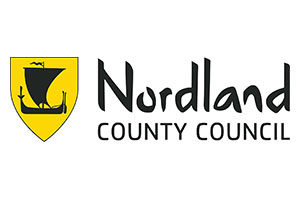
Nordland County Council is the regional elected authority for Nordland County. The supreme political body is the County Council. The County Council have 53 representatives elected every fourth year by the inhabitants at the County- and Municipal elections. A County Government consisting of six representatives, and is responsible for the daily governing of the county. The administration has approximately 300 employees. The County Council has approximately 3500 employees, mostly in upper secondary education.
Nordland County Council provides important services to the inhabitants of Nordland:
- Upper secondary education
- Bus and boat transport.
- Regional planning and environmental issues
- Business development, innovation and international projects
- Dental services
- Public health issues
- Cultural experiences
Department for business and regional development
The department for business and regional development is responsible for regional policy and industry policy in the county. We are working to create a positive development throughout the county for the benefit of Norland’s inhabitants and businesses. This means facilitating regional development by developing competitive companies, good local communities, and contributing to migration and recruitment to the county. We have among other things responsibility for overall social planning and innovation policy. The department is responsible for the SeeRRI project.
Una Sjørbotten [Senior advisor, main contact for SeeRRI – project]
Sjørbotten works primarily with innovation policies, Smart specialization, analysis- and strategy development. Sjørbotten has previously worked at Innovation Norway, Ministry of education and Ministry for municipalities and regional development. She is a Human geographer specialized in economic geography.
She lives in Bodø, in North of Norway.
Liv Rask Sørensen [Deputy director of economic development]
Sørensen is head of society section.
Karin Kristensen [Senior advisor and RRI- responsible in NCC]
Karin Kristensen is a senior advisor in the field of R&D. She has worked as project manager for collaborative projects between the county municipality and the Norwegian Research Council for almost 10 years. Kristensen holds a master’s degree in social anthropology.
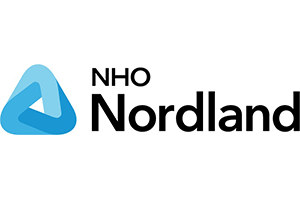
Member of the General Assembly
The Confederation of Norwegian Enterprise (NHO) [in Norwegian Næringslivets Hovedorganisasjon] is Norway’s largest organisation for employers and the leading business lobbyist. The regional office in Nordland (NHO Nordland) currently has a membership of 1560+ companies ranging from small family-owned businesses to multinational companies in most sectors. The NHO is the leading voice of business and industry in Norway. Having expert knowledge and an extensive business network, the NHO plays an important and constructive role in Norwegian society. NHO Nordlands main objective is to create and sustain conditions that safeguard the competitiveness and profitability of business and industry in Nordland, and thereby maintain the basis for a good standard of living, sound economic growth and sustainable development.
Anders Paulsen [Assisting Director]
Assistant director of NHO Nordland. He holds a Master of science in Business degree from Nord University Business School. He has more than 25 years of experience from private businesses, mainly from consulting, marketing, sales, leadership and project management. One of his current focus areas is working on increasing the knowledge of and participation in EU H2020 projects among businesses and public organizations in Nordland county. He is also working closely with enterprises in Nordland county and local, regional and national policy makers to create and sustain good conditions for competitive business development in Nordland.
Eivind Sommerseth [Project manager]
Senior advisor of NHO Nordland. He has a degree from the University of Agriculture and also law studies. 40 years of experience from leading positions within public organisations such as university, research council and county governor. He is currently part time positioned within NHO Nordland, working on increasing the knowledge of and participation in EU H2020 projects among businesses and public organizations in Nordland county. He is also responsible for the regional EU Network in Nordland under the Research Council of Norway.
![]() This project has received funding from the European Union’s Horizon 2020 research and innovation programme under grant agreement nº 824588.
This project has received funding from the European Union’s Horizon 2020 research and innovation programme under grant agreement nº 824588.

